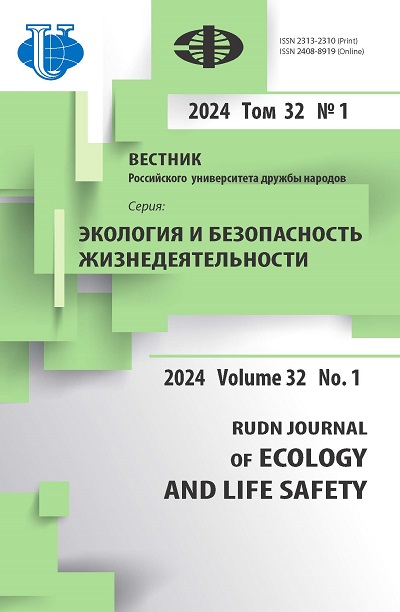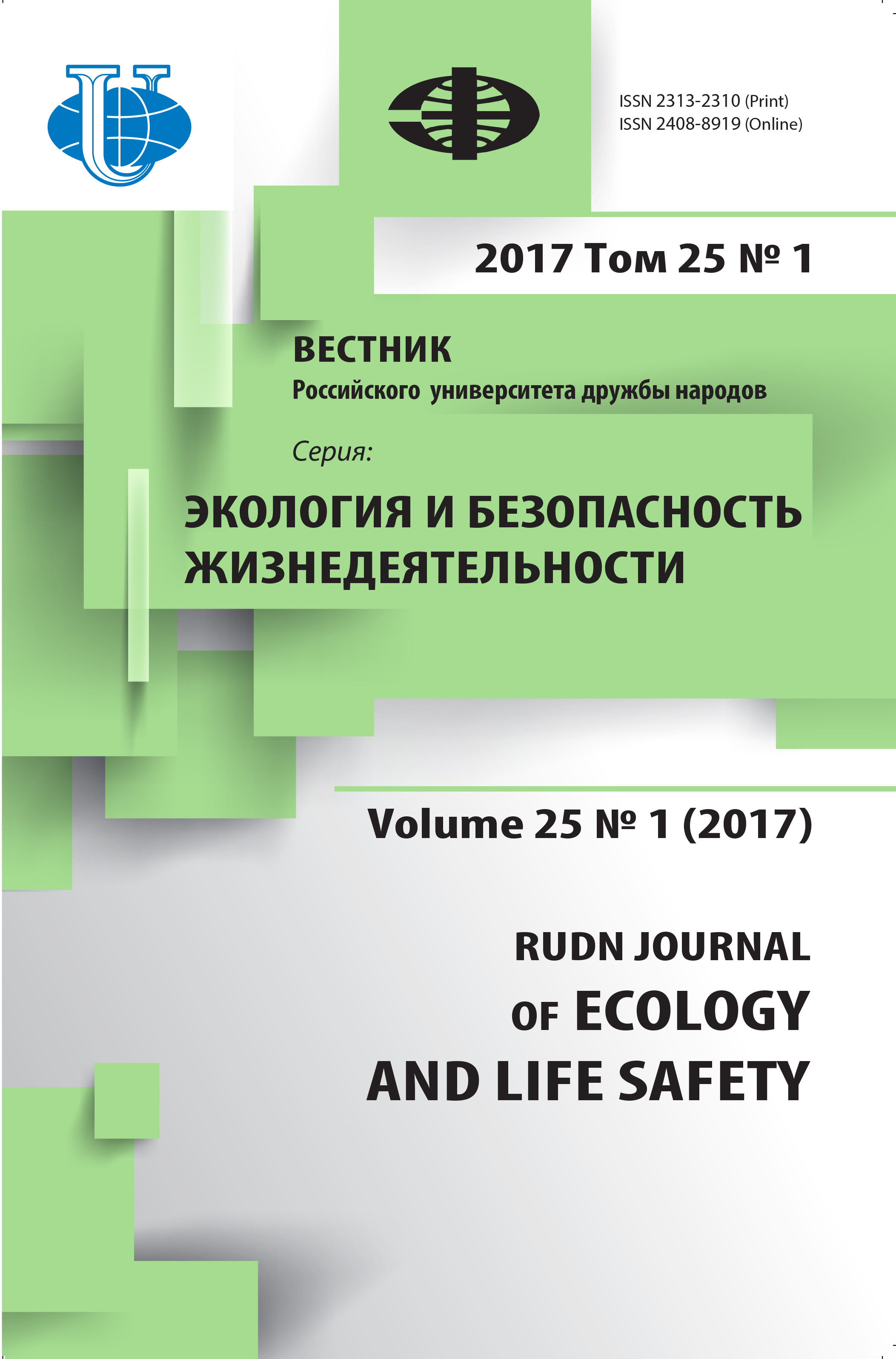ON THE ENVIRONMENTAL RISK OF A PATHOLOGY OF THE GASTROINTESTINAL TRACT ADULT POPULATION KURSK AREA UNDER INTENSIVE USE OF INSECTICIDES
- Authors: Korolev VA1, Lyashev JD1, Ryzhaeva VN1, Kirishcheva NE1, Korolev IV1, Nikitina ES1
-
Affiliations:
- Kursk State Medical University
- Issue: Vol 25, No 1 (2017)
- Pages: 178-186
- Section: Articles
- URL: https://journals.rudn.ru/ecology/article/view/16053
- DOI: https://doi.org/10.22363/2313-2310-2017-25-1-178-186
Cite item
Full Text
Abstract
This paper presents the evaluation of the use of insecticides in the agricultural production of the Kursk region. Studied territorial load dominant crop insecticides in a complex region for the period 2006-2013, were ranked the region in terms of territorial load insecticides. Estimated figures on theenvironmental risk of the formation of the pathology of the gastrointestinal tract of the adult population of the Kursk region in the intensive use of insecticides. Environmentally sensitive identified pathologies such as gastric ulcer and duodenal ulcers, gastritis and duodenitis, functional bowel disorders, diseases of the pancreas.
About the authors
V A Korolev
Kursk State Medical University
Author for correspondence.
Email: medical.ecology@yandex.ru
PhD, Doctor of Biological Sciences, Professor, Department of Biology, Medical Genetics and Ecology
Karl Marx str., Building 3, Kursk, Russia, 305041J D Lyashev
Kursk State Medical University
Email: medical.ecology@yandex.ru
PhD, Doctor of Medical Science, Professor of the Department of Pathological Physiology
Karl Marx str., Building 3, Kursk, Russia, 305041V N Ryzhaeva
Kursk State Medical University
Email: medical.ecology@yandex.ru
PhD, Candidate of Biological Sciences, Associate professor, Department of Biology, Medical Genetics and Ecology
Karl Marx str., Building 3, Kursk, Russia, 305041N E Kirishcheva
Kursk State Medical University
Email: natali.kirischeva@yandex.ru
PhD, Candidate of Medical Science, Department of Biology, Applicant, Medical Genetics and Ecology Medical University
Karl Marx str., Building 3, Kursk, Russia, 305041I V Korolev
Kursk State Medical University
Email: ecology@yandex.ru
Student of 6th year Faculty of Pediatrics
Karl Marx str., Building 3, Kursk, Russia, 305041E S Nikitina
Kursk State Medical University
Email: medical.ecology@yandex.ru
Student of 6th year Medical Faculty
Karl Marx str., Building 3, Kursk, Russia, 305041References
- Amirov N.H., Vasiliev V.V. Pesticides: health and safety. Penza: Publishing Penza State University, 2005.
- Belyaev E.N. Persistent organic pollutants in the environment, their impact on health. Ecological herald Russia. 2002. 8. 10—15.
- Bolshakov A.M., Krut’ko V.N., Putsillo E.V. Risk assessment and management of environmental influences on the health of the population. M.: “Editorial URSS”, 1999.
- List of pesticides and agrochemicals permitted for use in the Russian Federation. M.: Ministry of Agriculture of Russia, 2012.
- Timofeev G.P., Severenchuk P.N., Yushin V.V. Aspects of nanotechnology with biological safety of objects of the evaluation of the environment and the population. Proceedings of the SouthWestern State University. 2011. 3. 170—172.
- Chepikov N.A., Yushin V.V., Rykunova I.O. Improving the sociohygienic monitoring of the region using the IDEFmodeling and GIS. Proceedings of the SouthWestern State University. 2012. 11. 219—228.
- Mostafalou S., Abdollahi M. Concerns of environmental persistence of pesticides and human chronic diseases. Clinical and Experimental Pharmacology and Physiology. 2012. 2. 3.
- Zeise L., Bois F.Y., Chiu W.A. Addressing Human Variability in NextGeneration Human Health Risk Assessments of Environmental Chemicals. Environmental Health Perspectives. 2013. 121. 1. 23—29.
- Yushin V.V., Popov V.M., Makushkin V.P. Problems of assessment of occupational hazards in Russia. Proceedings of the SouthWestern State University. Series: Technology. 2012. 22. 217—221.
- Pesticides in ecosystems: Problems and Prospects: An analytical review. Novosibirsk, Siberian Branch, SPSTL 1994.
















